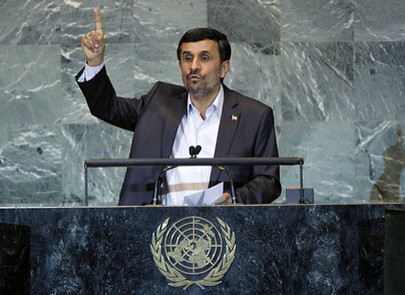There’s little evidence that Iran has a nuclear-weapons program, but if it did develop the bomb, that would not have to mean regional nuclear proliferation or Iran using nukes or giving them to terrorists.
With all the clamor to sanction and attack Iran, there's a minor issue most journalists are ignoring: the actual existence of a nuclear weapon. The International Atomic Energy Agency, the global organization responsible for securing nuclear materials around the world and making sure they are not spread or weaponized, has rigorous monitoring activities at Iran’s nuclear sites. It makes, as former U.S. National Security Council staffer Gary Sick writes, “frequent surprise visits, keep[ing] cameras in place to watch every move, and carefully measuring Iran’s input of feed stock to the centrifuges and the output of low enriched uranium, which is then placed under seal.”
For years, not one of the inspectors has been kicked out of Iran, a move that would signify that Tehran is about to up the ante on its nuclear material and turn it into a weapon. And U.S. intelligence has asserted that Iran’s supreme leader has not yet given the order to build a nuclear weapon, even though most experts (including the IAEA) suspect that Iran has some sort of weapons program underway. But most important, given the agency’s access, the inspectors have declared that there is currently no nuclear-weapons program to speak of in Iran. Of course, the IAEA has taken issue with restrictions on its access to Iranian facilities, but even America’s intelligence agencies, Israel’s Mossad, and countless others have come to the same conclusion themselves. These speculations about Iran’s hypothetical transgressions have at their source American uncertainty about Iran’s intentions, not certainty about Iran’s abilities. More
